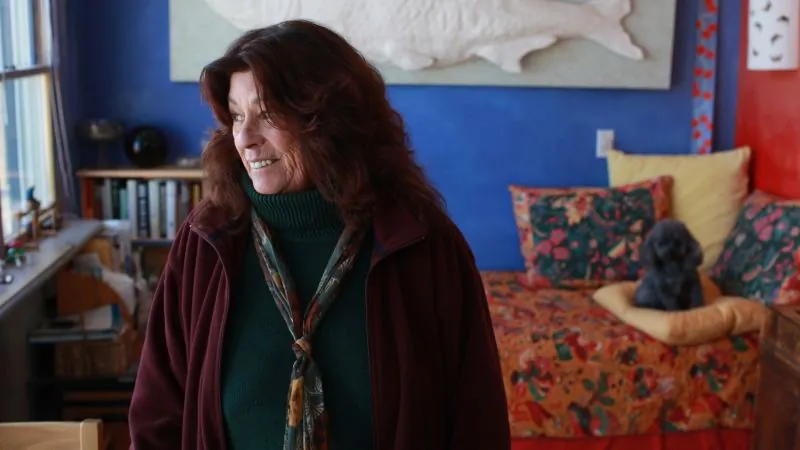
Alice Brock, Inspiration Behind Arlo Guthrie’s ‘Alice’s Restaurant,’ Passes Away at 83
2024-11-23
Author: Sophie
Alice Brock's Legacy
Alice Brock, the beloved figure whose Massachusetts restaurant famously inspired Arlo Guthrie’s iconic Thanksgiving song “Alice’s Restaurant Massacree,” has passed away at the age of 83. Her death was announced just days before Thanksgiving by Guthrie himself on the Facebook page of his Rising Son Records, revealing she had been in declining health prior to her passing in Provincetown, Massachusetts, where she had resided for nearly four decades.
“Alice and I spoke a couple of weeks ago, and it felt like old times,” Guthrie shared in his heartfelt message, adding that this Thanksgiving would mark the first without her presence. The pair fondly remembered their past conversations, even though they acknowledged their time to chat was coming to a close.
Early Life and Activism
Born Alice May Pelkey in New York City, Brock was an indomitable spirit and a champion of social justice, having been an active member of the Students for a Democratic Society during her youth. In the early 1960s, she took a leap of faith, dropping out of Sarah Lawrence College, moving to Greenwich Village, and marrying woodworker Ray Brock, who encouraged her to settle in Massachusetts.
Friendship with Arlo Guthrie
Brock first crossed paths with a young Guthrie around 1962 when he attended the Stockbridge School and she served as the librarian. Their friendship blossomed, leading to countless visits where Guthrie would stay in the Brocks’ home, a repurposed church in Stockbridge.
The Birth of a Protest Anthem
A fateful incident on Thanksgiving Day 1965 changed the course of both their lives. While helping the Brocks clear away trash, Guthrie and his friend Richard Robbins were arrested for illegal dumping, a minor offense that spiraled into Guthrie's avoidance of the Vietnam War draft and the birth of a protest anthem that resonates to this day.
The Back Room and Cultural Impact
By 1966, Brock had established The Back Room restaurant, where the connection between her life and Guthrie's burgeoning career flourished. His breakthrough song, a lengthy narrative that chronicled his arrest and subsequent exemption from military service, became a cultural staple—its chorus celebrating Brock and her establishment, humorously labeled “Alice’s Restaurant.”
Memories and Collaborations
Despite its lengthy duration, “Alice’s Restaurant” achieved remarkable success, evolving into a radio favorite and leading to a million-selling album, a film adaptation, and a cookbook. Brock herself authored a memoir titled “My Life as a Restaurant” and collaborated with Guthrie on a children's book, “Mooses Come Walking.” In their final discussions, they explored plans for an exhibit honoring her life and legacy at the Guthrie Center, which continues to host free dinners each Thanksgiving in her honor.
A Complex Life
Though Brock operated several restaurants throughout her life, she candidly admitted her ambivalence toward cooking and the business. She often reflected on how her restaurant ventures contributed to the challenges in her marriage with Ray Brock, countering allegations of infidelity with a resolve that underscored her character.
Conclusion
Ultimately, Alice Brock was more than just the inspiration for a song; she was a dynamic individual whose contributions to art, community, and the spirit of rebellion left a lasting impact. As Guthrie poignantly noted in his lyrics, “You can get anything you want at Alice’s Restaurant, excepting Alice.” Her legacy will undoubtedly endure, cherished by fans and friends alike, especially as we gather to give thanks this holiday season, missing her dearly.









 Brasil (PT)
Brasil (PT)
 Canada (EN)
Canada (EN)
 Chile (ES)
Chile (ES)
 España (ES)
España (ES)
 France (FR)
France (FR)
 Hong Kong (EN)
Hong Kong (EN)
 Italia (IT)
Italia (IT)
 日本 (JA)
日本 (JA)
 Magyarország (HU)
Magyarország (HU)
 Norge (NO)
Norge (NO)
 Polska (PL)
Polska (PL)
 Schweiz (DE)
Schweiz (DE)
 Singapore (EN)
Singapore (EN)
 Sverige (SV)
Sverige (SV)
 Suomi (FI)
Suomi (FI)
 Türkiye (TR)
Türkiye (TR)